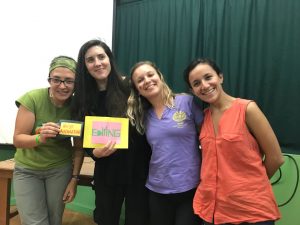I became a biologist due to an endless curiosity to learn and understand how everything in the natural world works. At first, I was interested in learning the name of every plant or animal that I can cross within a forest. Then, I realized that biology is like a labyrinth with many different paths to choose; I say labyrinth because on the way, I crossed with many different ways, each one pointing to different directions. Which way is the right way? All of them are, I believe. I decided to learn more about why animals are present at certain localities and not at others; which factors are influencing a species to select the suitable places where they inhabit? Of course the environmental conditions are crucial for species survival, and consequently, I was interested in understanding how the weather influences species occurrence.

I started my career as a biologist studying mammals. This choice was mainly a coincidence, but it turned out that this group of animals had many secrets that I wanted to dig into. Bats were, of course, the most interesting group (for me): they are crazily diverse, ecologically important, misunderstood, and most of the time feared by people, and I wanted to discover their extraordinary features to show people why they are not so bad, even good. I could say that I did not choose to study bats, but they chose me instead; how can anyone that by chance start learning how amazing they are may somehow become interested in something else? Bats are crucial in every ecosystem for seed dispersal, pollination, pest control, and more. But I was even more impressed by learning how they orientate and find food inside the forest, at night, using SOUND. However, the high-frequency signals that bats emit are sensible to “atmospheric attenuation”, the process in which sounds become increasingly fainter because of the heat and humidity. In a warming world, this could mean big trouble for the bats, and it turned out that I was able to connect again the influence of environmental conditions on species survival and fitness for my research.

This question took me to start my current project with insect-eating bats: Insectivorous bats play important roles in the ecosystem because they prey on insects that often are agricultural pests. In order to effectively localize, classify, and capture their prey, bats rely on their high-frequency sonar-like echolocation calls. However, the range over which these calls operate is a direct function of temperature and relative humidity, which determine sound attenuation. The magnitude of sound attenuation determines the detection range of sound, hence, climate change may alter the distance over which acoustic signals can be recognized and decoded by echolocating bats. During my research, I will determine whether bats adapt their calls to different weather conditions in order to keep their prey detection ranges constant. My goal during this project is to enhance conservation assessments by determining a species-specific sensitivity index to changes on environmental conditions taking into account the effect over prey detection ranges.

For me, the most difficult part of being a scientist is to stay in one single direction and ignore all the other ways in the labyrinth that I would like to look in. I am curious, and I like to switch directions. It is also difficult that, we are most of the time surrounded by scientists, and I know that there is nothing wrong about this, but, I am passionate about getting in contact with experts with different backgrounds: geography, art, journalism, etc. I enjoy learning from them, and I seek permanently for possibilities to share experiences that keep her curiosity awake and expand my knowledge and communication skills. Even though science is sometimes difficult, I am committed to share my findings in a simple way, to a broader audience through storytelling. In order to be successful I am keen to share knowledge and collaborate with experts in different areas and achieve my goal, which is to inspire and enthrall people into the importance of science for conservation.

My fascination for nature and wildlife encircles every activity that I take part in, besides my scientific interests, I enjoy outdoor sports, namely long-distance trail running, cross country biking and mountain climbing. Some of my biggest achievements have been to complete two 50k ultramarathons, to reach the summit of one of the highest peaks in Ecuador (Cayambe 5680m), and the highest peak in Mexico (Citlaltépetl, 5636m), and perform several spectacular mountain biking routes in my home country, Ecuador.
Altogether, I would say that I am a collector of experiences, moments, adventures, and friends…
Contact Paula at iturraldepolitpaula@gmail.com, or follow her on Twitter and Instagram @paumau39




